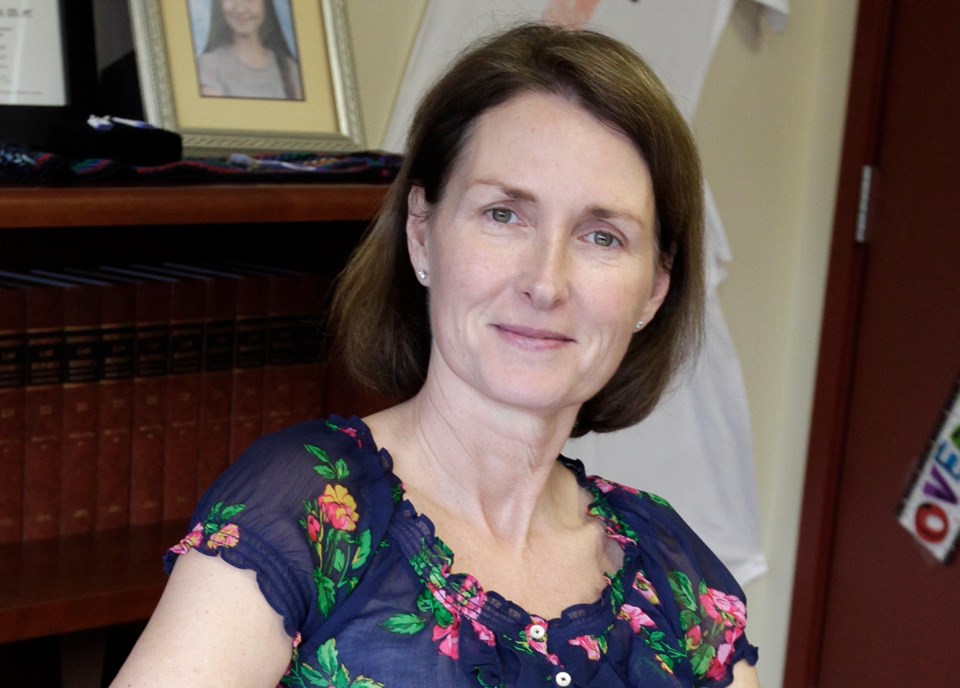 British Columbia’s representative for children and youth was granted authority to advocate for certain young adults last year.
British Columbia’s representative for children and youth was granted authority to advocate for certain young adults last year.
But giving her the right to advocate apparently doesn’t involve accepting the ideas she’s advancing.
Representative Mary Ellen Turpel-Lafond released a report Monday that recommends the government extend its responsibility for children in care past the age of 19. Minister of Children and Family Development Stephanie Cadieux turned thumbs down on her ideas inside of an hour.
It was the latest joust about an issue Turpel-Lafond has been discussing for the last several years. It’s about what happens to children in care after they turn 19 and effectively age out of the child-welfare system. About 700 clients a year turn 19 and leave the system. There’s a pervasive feeling that it doesn’t generally go well for them, and that the ministry could do more to help them launch their adult lives.
But as the representative acknowledges, there’s a remarkably scant amount of hard evidence about exactly what happens to children in care once they hit 19. She said there’s no easy way to collect baseline data, because there’s no data-collection system. There’s not much evaluation of the interventions and programs now in place. Research is spotty and based on very small samples.
“This lack of in-depth information is a significant barrier when discussing transitional processes and needs,” she said in her report.
There is a program available for young adults in certain specific instances that helps with tuition to a limited degree.
Turpel-Lafond recommended a youth secretariat to co-ordinate work in that area across all ministries and see that they get the same level of support as young adults raised in regular family settings. It would evaluate programs, begin the research that is so badly needed and work on increasing youths’ financial literacy, as well as getting them access to health and dental care.
She also urged the education ministry to define clear education plans for all youth in care. As well, the representative suggested extending foster care up to age 25 for youths going to college or apprenticing.
Cadieux rebuffed the concepts in short order, as gently as possible. She thanked Turpel-Lafond, said staff are going to follow up on the ideas and acknowledged “we know there is always more to do.” She said the report raises legitimate points and they will be considered.
But she said the ministry’s service plan and B.C.’s three-year budgeting system “don’t contemplate a mandate expansion or the establishment of new offices at this time.”
“We don’t have a legislative mandate to serve kids over 18, nor do we have the budget,” said Cadieux.
Then she backed away from that definitive rejection, denying it was a budgetary decision when obviously the costs are a big reason for turning it down.
“We’re not ignoring the recommendations, we’re just not going to say today we can do all this,” she said.
There’s no price tag on what the representative’s new concepts would cost. But they wouldn’t come cheap. A new secretariat would have a caseload of several hundred cases as soon as it opened its doors.
And the idea of putting clients on the same financial footing as young people raised by their families would cost a considerable sum per head. Her report quotes a study that found the average cost of attending University of Victoria for eight months a year is $16,244.
It’s conventionally accepted in social policy that young people have family support to make up shortfalls. But for the population the representative is concerned about, the government is the family. And the minister made clear that the family has other priorities.
It took a couple of years of pushing just to get the representative’s mandate changed so she has limited powers to advocate for vulnerable young adults. She argued for the expansion and was backed by various interest groups.
The standing committee of the legislature on children and youth recommended two years ago that her scope be widened, and the change was finally made last year.
It looks like it will take a similar concerted push to get the government to follow up on the ideas she is now advocating.



